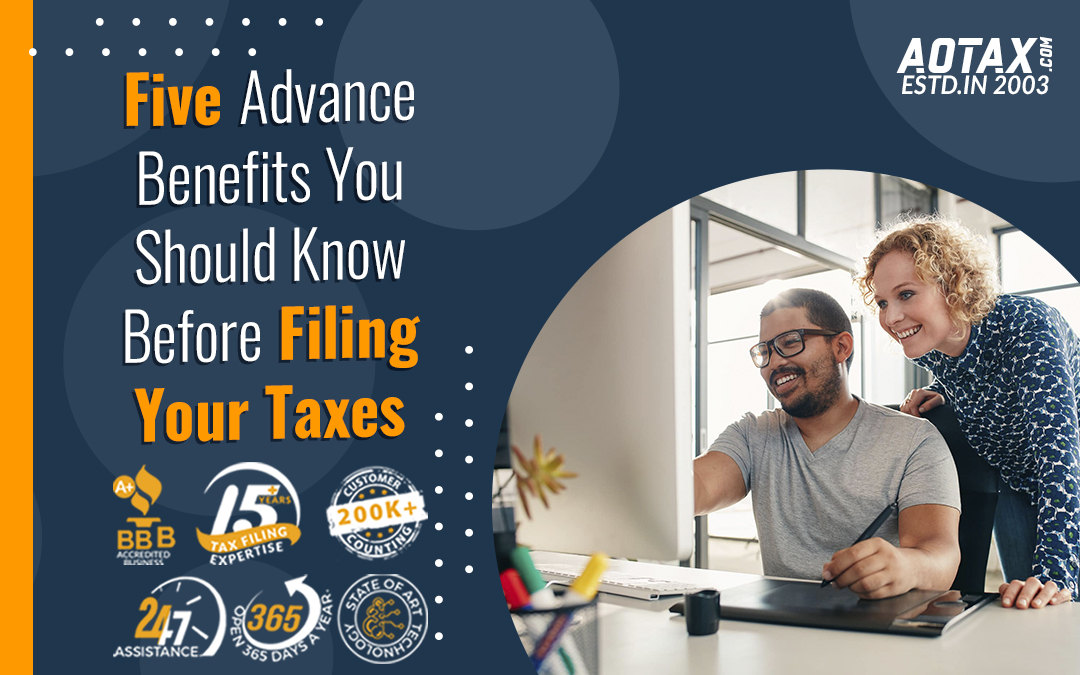
Five Advance Benefits You Should Know Before Filing Your Taxes
Five Advance Benefits You Should Know Before Filing Your Taxes
Managing taxes can seem to be a herculean tax and you might feel you work on it all year round. There are same basic things which you should know about filing your taxes even if you decide to take help from a professional and not doing it on your own.
Need to File a Federal Income Tax Return
It is not necessary that you need to file a federal income tax return if you have received any income during the calendar year. If you need to file your returns is dependent on several factors like your age, your filing status, your income and its source. For most of the tax payers, there is a simple rule they can follow which is to add their personal exemption to their standard deduction.
Take Advantage of Tax Credits and Breaks
Tax deductions have an impact on tax income by reducing it. What is more beneficial than these are tax credits which reduce your tax due by dollar for dollar. It is also possible that if you do not owe any taxes you can get back your money with credits as is the case with the American Opportunity Credit. You can get the benefit like the earned income tax credit for individuals who are working and earn a low or moderate income. For students, a claim can be made for all qualified expenses.
Self Employed
For any person who is employed, the taxes are withheld by the employer from the salary and these are then given to the Internal Revenue Service. At the end of the year, you can either get a refund or break even or sometimes even owe some taxes depending on your financial condition. For those who do not work under an employer and tax is not deducted and are self-employed, it is expected by the IRS that you can work and pay the taxes if you owe more than $1000. Apart from freelancers and self-employed individuals, this rule is applicable to corporation shareholders, landlords, tax payers with substantial investments and partners working in a partnership. The taxes that are estimated have to be paid every quarter and a federal form 1040ES has to be used to make payments. Any late payment or if you miss one will attract a penalty.
Due Dates are Important
It is essential to pay the taxes by the due date, as a failure to do so attracts interest and penalties which tend to add up fast. Everyone has their own due dates, be it your financial institution or your employer and so does the IRS. There is no statute of limitations for those who do not file their taxes by the due date and this implies that the taxes can be assessed and collected anytime by the IRS. In order to save this hassle, you must ensure to file taxes as per the due dates and if you have missed them, do not delay any further and do the needful at the earliest.
Unable to Pay Tax Bill
You will have to pay a penalty if you do not pay your tax bill but also do not file your returns. If you think you owe money and will not be able to pay your taxes, you should still go ahead and file your returns as this will save the penalty on that count. If you cannot pay all your due taxes by the Tax Day, you have the option to have a payment plan with IRS or pay on your credit card.
Knowing some basic and essential things about your taxes is always beneficial as this makes the whole process simpler and less burdensome. It is always advisable to have a thorough knowledge as this will not only ensure no penalties but also help save money.

Recent Comments